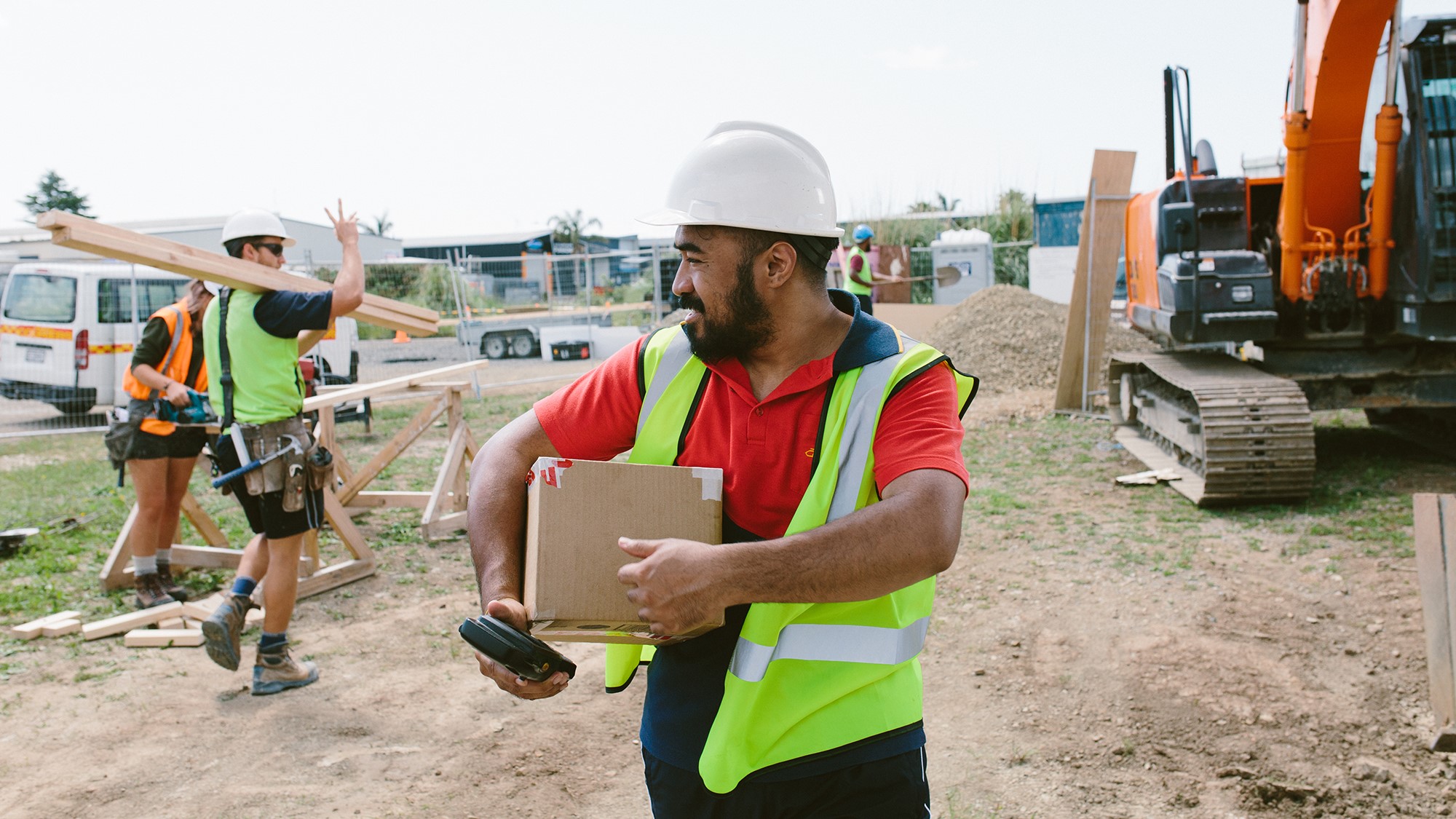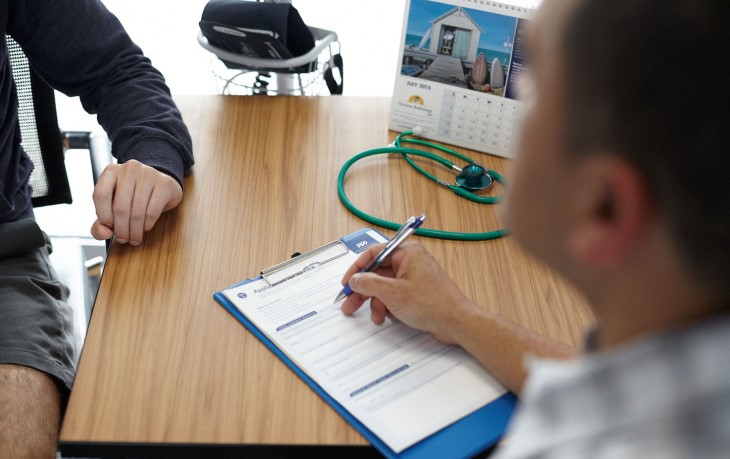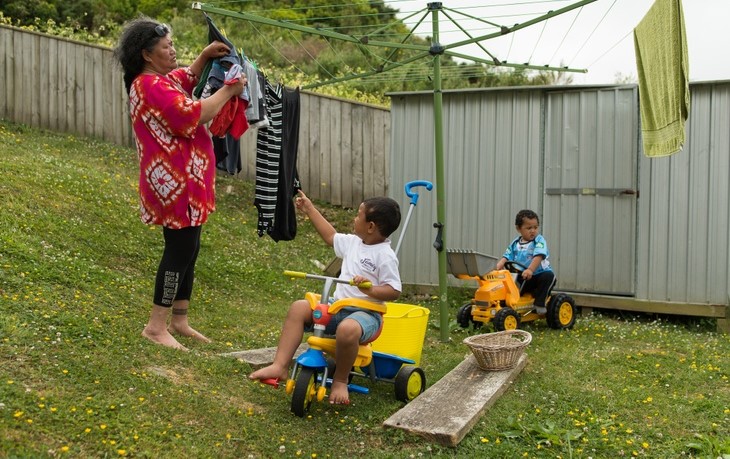After an injury, we're here for you and your whānau
Video transcript for We're here for whānau
Visual
Girl blowing bubbles pans out to two other children laughing and running around a yard with bubbles.
Scene focuses into a koro (grandfather) up a tree building a treehouse and adult son passes him up a plank of wood.
Transcript
Son – “You alright Pop?”
Koro – “Yep.”
Visual
Screen glitches and koro slips. Scene pans to son and child looking on worried. Pop is losing his balance off the treehouse with arms waving in the air.
Words appear – “If you’re injured in an accident, we’re here to support you and your whanau until you can get back to everyday life.”
Scene changes, showing koru’s arm grabbing onto a tree branch
Transcript
Koro – “ohhh, phew”
Visual
Child hammering a sign saying Ana and Matt’s whare. Scene changes to show child climbing up ladder to join koro up in the treehouse.
Words appear – “We’re here for whanau.” ACC logo appears with the words “He Kaupare. He Manaaki. He Whakaora. Prevention. Care. Recovery.”
If you get injured in an accident, we're here to support you and your whānau until you can get back to everyday life.
Injuries can happen anywhere in Aotearoa: at mahi, in the community, or at home.
We tailor the things we do to support the injured person. This can include things like providing financial support, covering medical costs and equipment, access to rongoā Māori services, counselling, help around the house, and with travel to work and medical appointments.
This takes away some of the worry about how they’ll keep supporting their loved ones. It allows them to focus on recovery, and takes the pressure off whānau, so they can continue with their daily life.
In 2021, we supported over 1.2 million people injured at home or in the community, and just over 190,000 people injured at work.
Some of the ways we can help
Many injured New Zealanders might not even realise that we're involved in their care. That's because 94% of people we help simply visit their doctor, a hospital or a physiotherapist for treatment and don't realise that we're working in the background to help pay for the treatment.
And it doesn't matter how old you are. That means if you're retired like grandad, or your children are at pre-school, or any age in between, we can help with care and recovery if you get injured.
Some of the ways we can help include:
- weekly compensation of up to 80% of your income
- doctor, hospital, and physio visits
- equipment, eg crutches
- access to rongoā Māori services
- help around the home
- transport to medical appointments and / or work
- transport to help the whānau continue with everyday life, like getting to school
- counselling
- support for victims of sexual assault
- surgery for more serious injuries
- house and vehicle modifications to enable independence for serious injuries
- financial support for whānau if someone dies as a result of an injury
Find more information about financial support after death:
Financial support if someone has died from an injury
Find out more about what we do:
Our homes are quickly becoming the place where we work, as well as relax, exercise, socialise, and look after our whānau.
Preventable injuries can happen anywhere around the home. You might be jumping rope, playing a game of backyard touch with the whānau, or tackling a DIY project.
We cover all kinds of injuries, even if they happened when you were doing a hobby or just playing.
Falls are the most common way of injuring yourself in Aotearoa and the home is the most common place to fall. Injuries from falling represent 39% of all ACC claims and cost around $1.1b per year.
Last year we supported 318 people who got injured in a water fight in the home. And though lots of New Zealanders are keen gardeners, things didn't always go smoothly: 71,656 people were injured in the garden last year.
But that doesn't mean we should stop doing fun things - instead, take a quick moment to check your surroundings before getting stuck into the mahi.
Take a look at some of the ways we help Aotearoa stay safe.
Nearly all injuries are preventable – and predictable. If we can see it coming, we can stop it happening. 'Have a hmmm' is a constructive wero (challenge) to Aotearoa: Take action to avoid injury and keep yourself, your whānau, friends and community safe and well.
7 ways we're hurting ourselves in the home
On average, two in every ten New Zealanders will suffer a preventable injury in the home. But what are the injuries behind the statistic? Find this and tips on how to stay safe at your place.
SafeKids has practical advice to help keep children safe from injuries like falls and drowning, and incidents on the road.
Live Stronger for Longer has practical advice on how to stay active, well, and independent for people aged over 65, including a checklist for safety round the home.
Water Safety New Zealand has advice on keeping safe around water, including around home pools.
We also support Water Skills for Life, the national standard for aquatic education in New Zealand primary schools.
SportSmart is a warm up programme to enhance sports performance and keep players injury-free.
Drive is an online learning tool to help young people become safe, skilled and capable drivers.
Ride Forever aims to increase the performance and passion of every motorcyclist in Aotearoa, supporting riders with the skills and knowledge to get the most out of every ride.





